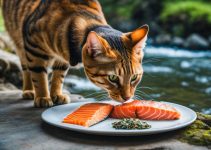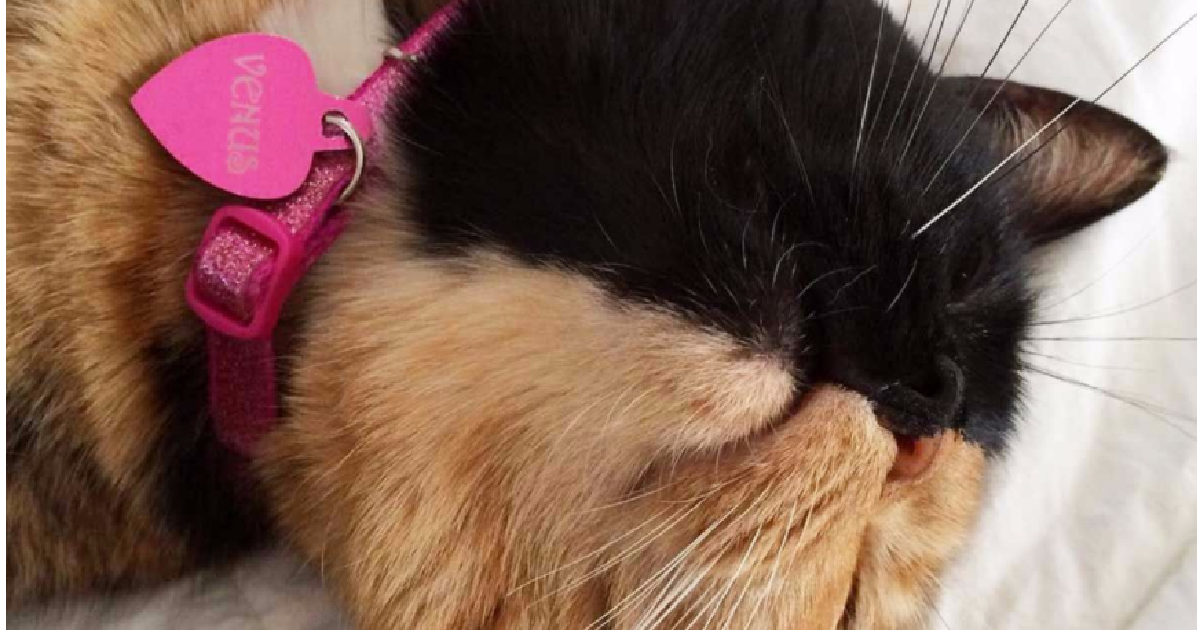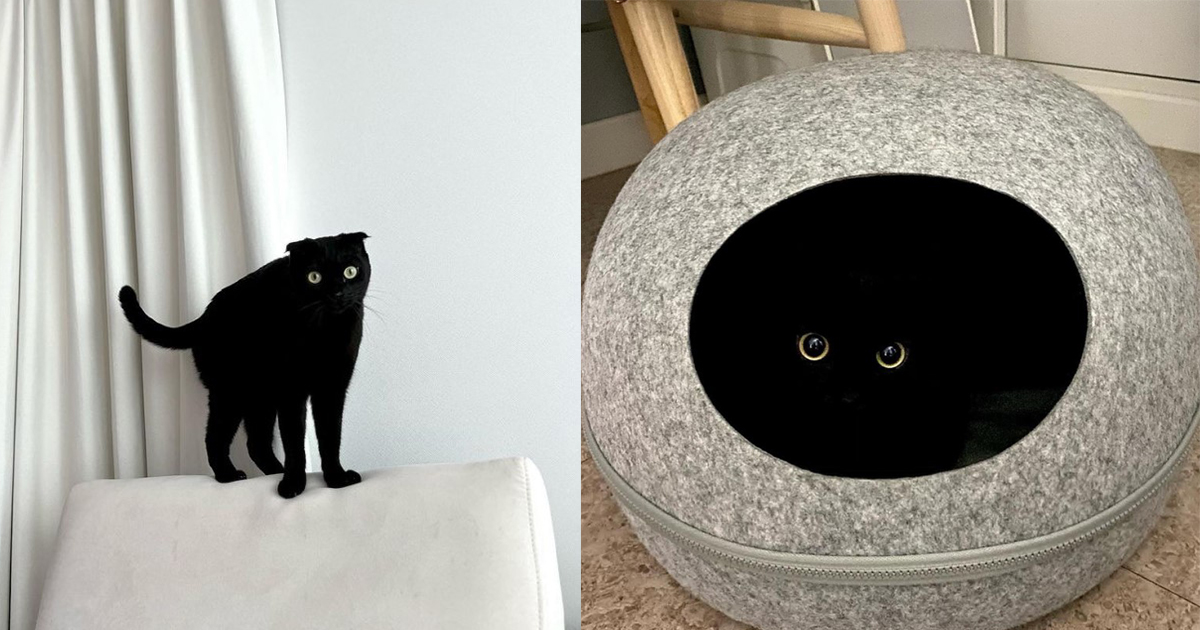Being a responsible cat owner means understanding your feline friend’s dietary needs. One common question that often arises is, “Can cats eat beef?” Well, the answer may surprise you. While cats are obligate carnivores and require a high amount of protein in their diet, beef can indeed be a safe and nutritious option for them. So, let’s dive into the fascinating world of feline dietary needs and explore the benefits and considerations of including beef in your cat’s menu.
Can Cats Eat Beef?
- Cats are obligate carnivores and require a diet high in protein.
- Beef is rich in essential nutrients like iron, zinc, and B-complex vitamins.
- Beef liver is an excellent source of taurine, a crucial amino acid for cats.
- Beef can be a safe and nutritious option for cats, but it’s important to start with small amounts and monitor their response.
- Consulting with a veterinarian can help create a personalized diet plan for your cat.
The Health Benefits of Beef for Cats
When it comes to feline nutrition, beef can provide several health benefits for cats. Not only is it a delicious and satisfying protein source, but it is also packed with essential nutrients that support their overall well-being. Beef is rich in iron, zinc, and B vitamins, which play crucial roles in various bodily functions.
One of the key advantages of beef for cats is its high protein content. Protein is essential for muscle development, repair, and overall growth. It helps to maintain strong and healthy muscles, which are vital for cats’ agility and mobility. Beef is also an excellent source of taurine, an essential amino acid for cats. Taurine is important for maintaining healthy vision and heart function.
The Importance of a Balanced Diet
While beef can offer numerous health benefits to cats, it is essential to remember that a balanced and varied diet is crucial for meeting their nutritional needs. While beef can be included in their diet, it should be complemented with other protein sources such as chicken, turkey, and fish. Offering a diverse range of protein options ensures that cats receive all the essential amino acids they need for optimal health.
It’s worth noting that individual cats may have different dietary preferences and tolerances. Some cats may have specific sensitivities or allergies to beef or certain types of proteins. Therefore, it’s important to monitor your cat’s response when introducing beef into their diet and consult with your veterinarian for tailored dietary advice.
Consulting a Veterinarian
When incorporating beef into your cat’s diet, it’s crucial to source high-quality beef and ensure it is properly cooked to eliminate any potential risk of bacterial contamination. Raw beef poses health hazards for cats, including the risk of parasites and foodborne illnesses. Consulting with a veterinarian can help you make informed decisions about your cat’s dietary needs, including the appropriate amount and frequency of beef consumption.
Beef can offer several health benefits for cats, including providing essential nutrients and high-quality protein. However, it’s important to ensure a balanced and varied diet that meets all of your cat’s nutritional needs. Consulting with a veterinarian will help determine the best approach for incorporating beef into your cat’s diet and ensuring their long-term health and well-being.
Feeding Cats Beef: Considerations and Precautions
When it comes to feeding cats beef, there are a few important considerations to keep in mind. While many cats enjoy the taste of beef and it can be a great source of essential nutrients, it’s crucial to introduce it gradually and monitor your cat’s response. Just like humans, cats can have individual dietary preferences and sensitivities, so it’s essential to observe any changes in their health or digestion when incorporating beef into their diet.
Additionally, it’s vital to source high-quality beef and ensure it is properly cooked. Raw beef, while appealing to some cat owners following a raw diet approach, can pose health risks to cats. Raw meat may contain parasites and bacteria, which can lead to foodborne illnesses and potentially harm both your cat and yourself. To ensure the safety of your cat’s diet, it’s best to consult with a veterinarian to determine if beef is a suitable addition and to receive guidance on safe feeding practices.
Gradual Introduction and Monitoring
When introducing beef to your cat’s diet, start with small amounts and observe their reaction. Look for any signs of digestive upset, such as vomiting or diarrhea. If your cat tolerates the beef well, you can gradually increase the portion size. However, if you notice any adverse effects or changes in their behavior, it’s best to discontinue feeding beef and consult with your veterinarian.
Choosing High-Quality Beef
When selecting beef for your cat, opt for high-quality cuts that are fresh and free from additives or preservatives. Lean cuts of beef, such as sirloin or ground beef with a low fat content, are generally recommended. Avoid using seasoned or processed meats, as they may contain ingredients that can be harmful to cats.
Cooking Beef for Safety
To eliminate the risk of bacterial contamination, it’s crucial to cook the beef thoroughly before feeding it to your cat. Ensure that the meat is cooked to an internal temperature of at least 145°F (63°C) to kill any potential pathogens. Avoid using seasonings or spices that can be toxic to cats, such as onion or garlic powder. Once the beef is cooked, allow it to cool before serving it to your cat.
Pros and Cons of Raw Beef for Cats
Feeding raw beef to cats is a topic that sparks ongoing debate among pet owners and experts. While raw beef has its benefits, such as higher protein content and superior moisture content, it also comes with its fair share of risks. Raw beef can potentially contain harmful bacteria and parasites that can be detrimental to both cats and humans.
The main advantage of feeding raw beef to cats is its higher nutritional value. Raw meat is rich in natural enzymes and amino acids, which can contribute to optimal feline health. It also provides a more natural and varied diet for cats, resembling what they would consume in the wild. Additionally, the high moisture content in raw beef can help promote healthy hydration in cats.
However, it is essential to consider the potential risks associated with raw beef. Raw meat can carry harmful bacteria like Salmonella and E. coli, which can cause foodborne illnesses in cats and humans alike. Similarly, raw beef can harbor parasites, such as Toxoplasma gondii, which can pose serious health risks to cats.
The Bottom Line: Importance of Safety and Balance
Feeding raw beef to cats should be approached with caution and only under the guidance of an animal nutritionist or veterinarian. It is crucial to ensure that the raw beef is sourced from reliable and safe sources to minimize the risk of contamination. Additionally, a balanced and complete diet is crucial to meet the nutritional needs of cats, whether it includes raw beef or other protein sources.
Beef Alternatives and Other Foods to Avoid
When it comes to providing a well-rounded diet for your cat, beef is not the only option available. There are several cat-friendly protein sources that can meet their nutritional needs. Chicken, turkey, and fish are all excellent alternatives to beef and can provide the essential nutrients that your cat requires. These protein sources are often found in commercial cat foods, which are specifically formulated to meet feline dietary requirements. Incorporating a variety of protein options can contribute to a balanced and nutritionally sound diet for your furry friend.
While it’s important to consider alternative protein sources, it’s equally crucial to be aware of foods that should be avoided in a cat’s diet. Certain foods can be toxic and harmful to cats, and should never be given to them. Chocolate, grapes, raisins, onions, garlic, and alcohol are all examples of foods that can have adverse effects on cats’ health. These substances can lead to various health issues, ranging from gastrointestinal problems to organ damage. It’s essential to keep these foods out of your cat’s reach and maintain a safe environment to ensure their well-being.
Choosing a Balanced Diet for Your Cat
When deciding on the best diet for your cat, it’s important to consider their individual nutritional needs and preferences. Consulting with a veterinarian is the best way to determine a balanced and tailored diet plan for your furry companion. They can provide guidance on the ideal protein sources for your cat, as well as other dietary considerations based on their age, weight, and any specific health conditions they may have. By working closely with a veterinarian, you can ensure that your cat receives the optimal nutrition they need to thrive.
Overall, while beef can be a safe option for cats, it’s crucial to explore other protein sources and avoid potentially harmful foods. By offering a diverse range of protein options and consulting with a veterinarian, you can create a well-rounded diet that meets your cat’s specific needs and promotes their overall health and vitality.

Conclusion
Including beef in a cat’s diet can provide essential nutrients and protein to support their overall health and well-being. Cats are obligate carnivores, and while they primarily consume meats like chicken, fish, and turkey, beef can also be a safe and nutritious option for them.
Beef is rich in vital vitamins and minerals, such as iron, zinc, and B-complex vitamins, which contribute to feline nutrition. Beef liver, in particular, is an excellent source of taurine, an essential amino acid for cats that supports heart function and vision.
It is important to introduce beef gradually and in small amounts, observing your cat’s response. Ensuring the beef is of high quality and properly cooked minimizes the risk of bacterial contamination. Consulting with a veterinarian can help create a well-balanced diet plan specific to your cat’s needs and preferences.
FAQ
Can cats eat beef?
Yes, beef can be included in a cat’s diet. It is a good source of essential nutrients and protein.
Are there any health benefits of beef for cats?
Yes, beef is rich in nutrients like iron, zinc, and B vitamins, which support overall feline health and contribute to muscle development and repair.
Do I need to be cautious when feeding cats beef?
It is important to start with small amounts and monitor your cat’s response. Ensure the beef is sourced from reliable and safe sources and cooked properly to eliminate the risk of bacterial contamination.
Can cats eat raw beef?
Raw beef comes with risks, including the potential transmission of bacteria and parasites. Feeding raw beef should be done under the guidance of an animal nutritionist or veterinarian.
What are some alternative protein sources for cats?
Cats can also consume meats like chicken, turkey, and fish. Many commercial cat foods offer a variety of protein options specifically formulated for feline nutritional needs.
Are there any foods I should avoid feeding my cat?
Yes, certain foods like chocolate, grapes, raisins, onions, garlic, and alcohol can be toxic to cats and should be kept away from them.






